Você já se perguntou se outros animais podem entender a morte? Este vídeo intrigante explora comportamentos incomuns em orcas, elefantes, e até mesmo primatas, levantando questões sobre se eles realmente sentem luto. A ciência está revelando pistas sobre as emoções dos animais, e as implicações são reais – desde o tratamento de orcas em cativeiro até o manejo de vacas leiteiras e seus filhotes. Venha descobrir mais sobre esse fascinante mundo emocional no reino animal.
| Audio | |
|---|---|
Normal | Slow |
| English Transcript | Tradução |
| In 2018, an orca called Tahlequah gave birth. | Em 2018, uma orca chamada Tahlequah deu à luz. |
| But her daughter died within an hour. | Mas sua filha morreu em uma hora. |
| Tahlequah, however, didn't leave her body. | Tahlequah, no entanto, não deixou seu corpo. |
| And over the next 17 days and 1,600 kilometers, she kept it afloat atop her own, diving to retrieve the body whenever it slipped away, even after it began deteriorating. | E durante os próximos 17 dias e 1.600 quilômetros, ela a manteve flutuando sobre o seu corpo, mergulhando para recuperar o corpo sempre que ele escorregava, mesmo depois de começar a se deteriorar. |
| By altering her feeding and travel patterns, Tahlequah's behavior was certainly unusual. | Ao alterar seus padrões de alimentação e viagens, o comportamento de Tahlequah era certamente incomum. |
| But was she mourning— or just confused? | Mas ela estava de luto ou apenas confusa? |
| Do non-human animals grieve? | Os animais não humanos sofrem? |
| This question is tricky. | Esta questão é complicada. |
| In 1871, Charles Darwin argued that other animals experience a wide range of emotions, including grief. | Em 1871, Charles Darwin argumentou que outros animais experimentam uma ampla gama de emoções, incluindo a dor. |
| But, especially in the absence of a dependable bridge between our minds and theirs, many scientists have long been wary of projecting human emotions onto other animals. | Mas, especialmente na ausência de uma ponte confiável entre nossas mentes e as deles, muitos cientistas há muito temem projetar emoções humanas em outros animais. |
| It's also been thought that they might display irregular behaviors after a death for other adaptive reasons. | Também se pensa que eles podem exibir comportamentos irregulares após a morte por outras razões adaptativas. |
| And, for a while, the paradigm was that humans were exceptional: other animals were reacting and surviving, while we alone were thinking and feeling. | E, por um tempo, o paradigma era que o ser humano era excepcional: os outros animais reagiam e sobreviviam, enquanto nós sozinhos pensávamos e sentíamos. |
| This conception was increasingly challenged during the 20th century. | Essa concepção foi cada vez mais contestada durante o século XX. |
| In 1985, for example, a gorilla called Koko, who'd been trained to use some signs from American Sign Language, was told that her kitten companion had died. | Em 1985, por exemplo, uma gorila chamada Koko, que havia sido treinada para usar alguns sinais da linguagem de sinais americana, foi informada de que seu gatinho companheiro havia morrido. |
| She made distress calls, and several weeks later, looking at a photo of another kitten signed "cry," "sad," and "frown". | Ela fez sinais de tristeza e, várias semanas depois, olhou para uma foto de outro gatinho e fez sinais indicativos de "chorar", "triste" e "testa franzida". |
| Now there's a growing pool of data and observations suggesting that some animals, including mammals and birds, might experience what we call grief. | Agora há um conjunto crescente de dados e observações sugerindo que alguns animais, incluindo mamíferos e pássaros, podem experimentar o que chamamos de luto. |
| In 2003, Eleanor, an elephant matriarch, collapsed. | Em 2003, Eleanor, uma matriarca elefante, desmaiou. |
| Within minutes, another matriarch called Grace neared and helped Eleanor stand, only for her to fall again. | Em poucos minutos, outra matriarca chamada Grace se aproximou e ajudou Eleanor a se levantar, apenas para ela cair novamente. |
| Grace vocalized, stayed by Eleanor's side, and tried pushing her back up. | Grace vocalizou, ficou ao lado de Eleanor e tentou empurrá-la de volta. |
| When Eleanor died, a female named Maui approached, positioned herself over Eleanor's body, and rocked back and forth. | Quando Eleanor morreu, uma fêmea chamada Maui se aproximou, posicionou-se sobre o corpo de Eleanor e balançou para frente e para trás. |
| Over the course of one week, elephants from five different families visited Eleanor's body. | Ao longo de uma semana, elefantes de cinco famílias diferentes visitaram o corpo de Eleanor. |
| On separate occasions, elephants have been observed carrying the remains of family members, including jawbones and tusks. | Em ocasiões distintas, elefantes foram observados carregando os restos mortais de membros da família, incluindo mandíbulas e presas. |
| In 2010, a giraffe was born with a deformed foot and had trouble walking. | Em 2010, uma girafa nasceu com um pé deformado e com dificuldade para andar. |
| The calf lived just four weeks. | O filhote viveu apenas quatro semanas. |
| On the day the calf died, 22 other females and four juveniles closely attended and occasionally nuzzled the body. | No dia em que o filhote morreu, 22 outras fêmeas e quatro jovens compareceram de perto e ocasionalmente acariciaram o corpo. |
| On the third morning, the mother was alone and still not eating, which giraffes usually do constantly. | Na terceira manhã, a mãe estava sozinha e ainda sem comer, o que as girafas costumam fazer constantemente. |
| Instead, she stayed by her dead calf, even after hyenas ate away at the body. | Em vez disso, ela ficou ao lado de seu filhote morto, mesmo depois que as hienas comeram o corpo. |
| Scientists have also begun quantitatively assessing other animals' responses to death. | Os cientistas também começaram a avaliar quantitativamente as respostas de outros animais à morte. |
| In 2006, researchers analyzed baboon fecal samples for glucocorticoids, stress hormones that spike when humans are bereaved. | Em 2006, os pesquisadores analisaram amostras fecais de babuínos em busca de glicocorticóides, hormônios do estresse que aumentam quando os humanos estão enlutados. |
| They compared the samples from females who had lost a close relative in a predator attack with those who hadn't. | Eles compararam as amostras de fêmeas que perderam um parente próximo em um ataque de predador com aquelas que não perderam. |
| And they found that the glucocorticoid levels of baboons who had were significantly higher the month following the death. | E eles descobriram que os níveis de glicocorticóides dos babuínos que tiveram uma perda foram significativamente maiores no mês seguinte à morte. |
| Those baboons then increased their grooming behavior and the number of their grooming partners, broadening and strengthening their social networks. | Esses babuínos então aumentaram seu comportamento de catação e o número de parceiros de catação, ampliando e fortalecendo suas redes sociais. |
| Within two months, their glucocorticoid levels returned to the baseline. | Dentro de dois meses, seus níveis de glicocorticóides retornaram à linha de base. |
| Researchers have also observed primate mothers engaging in apparently contradictory behaviors while carrying their dead children. | Pesquisadores também observaram mães primatas se envolvendo em comportamentos aparentemente contraditórios enquanto carregavam seus filhos mortos. |
| Like switching between cannibalizing or dragging their child's corpse and carefully carrying or grooming it, suggesting that the mothers were experiencing conflicting impulses towards the bodies. | Como alternar entre canibalizar ou arrastar o cadáver de seu filho e carregá-lo ou alisá-lo com cuidado, sugerindo que as mães estavam experimentando impulsos conflitantes em relação aos corpos. |
| Our current understanding of the emotional landscapes of other animals is severely limited. | Nossa compreensão atual dos comportamentos emocionais de outros animais é severamente limitada. |
| To get a better grasp on mourning in the animal kingdom, we need a lot more research. | Para entender melhor o luto no reino animal, precisamos de muito mais pesquisas. |
| But where does this leave us for now? | Mas onde isso nos deixa por enquanto? |
| Conversations around whether non-human animals experience emotions, like grief, can be emotional, in part because their outcomes have very real implications - like determining if orcas should be isolated and kept in captivity, or whether dairy cows should be separated from their newborn calves. | As conversas sobre se os animais não humanos experimentam emoções, como luto, podem ser emocionais, em parte porque seus resultados têm implicações muito reais - como determinar se as orcas devem ser isoladas e mantidas em cativeiro ou se as vacas leiteiras devem ser separadas de seus filhotes recém-nascidos . |
| Until we do have more data on the subject, should we treat non-human animals like they may have the capacity to grieve? | Até que tenhamos mais dados sobre o assunto, devemos tratar os animais não humanos como se eles tivessem a capacidade de sofrer? |
| Or assume they don't? | Ou assumir que não? |
| Which belief could cause more harm? | Qual crença poderia causar mais danos? |
Contagem de palavras
A tabela abaixo exibe as palavras encontradas neste vídeo, bem como o número de vezes em que aparecem.
Veja também: Para que serve esta tabela?
| Freq. | Palavra | Freq. | Palavra | Freq. | Palavra |
|---|---|---|---|---|---|
| 26 | the | 25 | and | 14 | a |
| 12 | in | 11 | of | 8 | their |
| 8 | that | 8 | her | 8 | animals |
| 7 | was | 7 | to | 7 | other |
| 7 | have | 6 | for | 6 | body |
| 5 | were | 5 | we | 5 | they |
| 5 | or | 5 | on | 5 | it |
| 5 | had | 4 | she | 4 | not |
| 4 | like | 4 | is | 4 | human |
| 4 | from | 4 | do | 4 | died |
| 4 | but | 4 | been | 3 | within |
| 3 | who | 3 | while | 3 | this |
| 3 | should | 3 | over | 3 | non |
| 3 | more | 3 | including | 3 | grooming |
| 3 | grief | 3 | experience | 3 | emotions |
| 3 | eleanor's | 3 | eleanor | 3 | death |
| 3 | carrying | 3 | called | 3 | calf |
| 3 | by | 3 | be | 3 | an |
| 3 | also | 3 | after | 2 | with |
| 2 | which | 2 | whether | 2 | when |
| 2 | weeks | 2 | those | 2 | tahlequah |
| 2 | suggesting | 2 | stayed | 2 | some |
| 2 | scientists | 2 | samples | 2 | researchers |
| 2 | our | 2 | observed | 2 | now |
| 2 | mothers | 2 | might | 2 | matriarch |
| 2 | levels | 2 | leave | 2 | kitten |
| 2 | kept | 2 | just | 2 | humans |
| 2 | grieve | 2 | grace | 2 | glucocorticoid |
| 2 | four | 2 | females | 2 | even |
| 2 | emotional | 2 | elephants | 2 | dead |
| 2 | data | 2 | between | 2 | behaviors |
| 2 | behavior | 2 | back | 2 | baboons |
| 2 | away | 2 | at | 2 | another |
| 2 | alone | 1 | wide | 1 | who'd |
| 1 | where | 1 | whenever | 1 | what |
| 1 | week | 1 | wary | 1 | walking |
| 1 | vocalized | 1 | visited | 1 | very |
| 1 | usually | 1 | use | 1 | us |
| 1 | up | 1 | unusual | 1 | until |
| 1 | understanding | 1 | two | 1 | tusks |
| 1 | trouble | 1 | tried | 1 | tricky |
| 1 | treat | 1 | travel | 1 | trained |
| 1 | towards | 1 | told | 1 | thought |
| 1 | third | 1 | thinking | 1 | there |
| 1 | then | 1 | theirs | 1 | th |
| 1 | tahlequah's | 1 | switching | 1 | surviving |
| 1 | subject | 1 | stress | 1 | strengthening |
| 1 | still | 1 | stand | 1 | spike |
| 1 | social | 1 | slipped | 1 | signs |
| 1 | significantly | 1 | signed | 1 | sign |
| 1 | side | 1 | severely | 1 | several |
| 1 | separated | 1 | separate | 1 | sad |
| 1 | rocked | 1 | returned | 1 | retrieve |
| 1 | responses | 1 | research | 1 | remains |
| 1 | relative | 1 | reasons | 1 | real |
| 1 | reacting | 1 | range | 1 | question |
| 1 | quantitatively | 1 | pushing | 1 | projecting |
| 1 | primate | 1 | predator | 1 | positioned |
| 1 | pool | 1 | photo | 1 | patterns |
| 1 | partners | 1 | part | 1 | paradigm |
| 1 | own | 1 | outcomes | 1 | orcas |
| 1 | orca | 1 | onto | 1 | only |
| 1 | one | 1 | occasions | 1 | occasionally |
| 1 | observations | 1 | nuzzled | 1 | number |
| 1 | next | 1 | newborn | 1 | networks |
| 1 | need | 1 | neared | 1 | named |
| 1 | mourning— | 1 | mourning | 1 | mother |
| 1 | morning | 1 | months | 1 | month |
| 1 | minutes | 1 | minds | 1 | members |
| 1 | may | 1 | maui | 1 | many |
| 1 | mammals | 1 | made | 1 | lot |
| 1 | lost | 1 | looking | 1 | long |
| 1 | lived | 1 | limited | 1 | later |
| 1 | language | 1 | landscapes | 1 | koko |
| 1 | kingdom | 1 | kilometers | 1 | juveniles |
| 1 | jawbones | 1 | isolated | 1 | irregular |
| 1 | instead | 1 | increasingly | 1 | increased |
| 1 | impulses | 1 | implications | 1 | if |
| 1 | hyenas | 1 | however | 1 | hour |
| 1 | hormones | 1 | higher | 1 | herself |
| 1 | helped | 1 | harm | 1 | growing |
| 1 | grasp | 1 | gorilla | 1 | glucocorticoids |
| 1 | giraffes | 1 | giraffe | 1 | get |
| 1 | gave | 1 | frown | 1 | found |
| 1 | forth | 1 | foot | 1 | following |
| 1 | five | 1 | female | 1 | feeling |
| 1 | feeding | 1 | fecal | 1 | family |
| 1 | families | 1 | fall | 1 | experiencing |
| 1 | exceptional | 1 | example | 1 | especially |
| 1 | engaging | 1 | elephant | 1 | eating |
| 1 | during | 1 | dragging | 1 | does |
| 1 | diving | 1 | distress | 1 | display |
| 1 | different | 1 | did | 1 | determining |
| 1 | deteriorating | 1 | dependable | 1 | deformed |
| 1 | days | 1 | day | 1 | daughter |
| 1 | darwin | 1 | dairy | 1 | current |
| 1 | cry | 1 | cows | 1 | course |
| 1 | could | 1 | corpse | 1 | conversations |
| 1 | contradictory | 1 | constantly | 1 | confused |
| 1 | conflicting | 1 | conception | 1 | compared |
| 1 | companion | 1 | collapsed | 1 | closely |
| 1 | close | 1 | children | 1 | child's |
| 1 | charles | 1 | challenged | 1 | certainly |
| 1 | century | 1 | cause | 1 | carefully |
| 1 | captivity | 1 | capacity | 1 | cannibalizing |
| 1 | can | 1 | calves | 1 | calls |
| 1 | call | 1 | broadening | 1 | bridge |
| 1 | born | 1 | bodies | 1 | birth |
| 1 | birds | 1 | better | 1 | bereaved |
| 1 | belief | 1 | begun | 1 | began |
| 1 | because | 1 | baseline | 1 | baboon |
| 1 | attended | 1 | attack | 1 | atop |
| 1 | ate | 1 | assume | 1 | assessing |
| 1 | around | 1 | argued | 1 | are |
| 1 | approached | 1 | apparently | 1 | animals' |
| 1 | animal | 1 | analyzed | 1 | american |
| 1 | altering | 1 | again | 1 | afloat |
| 1 | adaptive | 1 | absence |


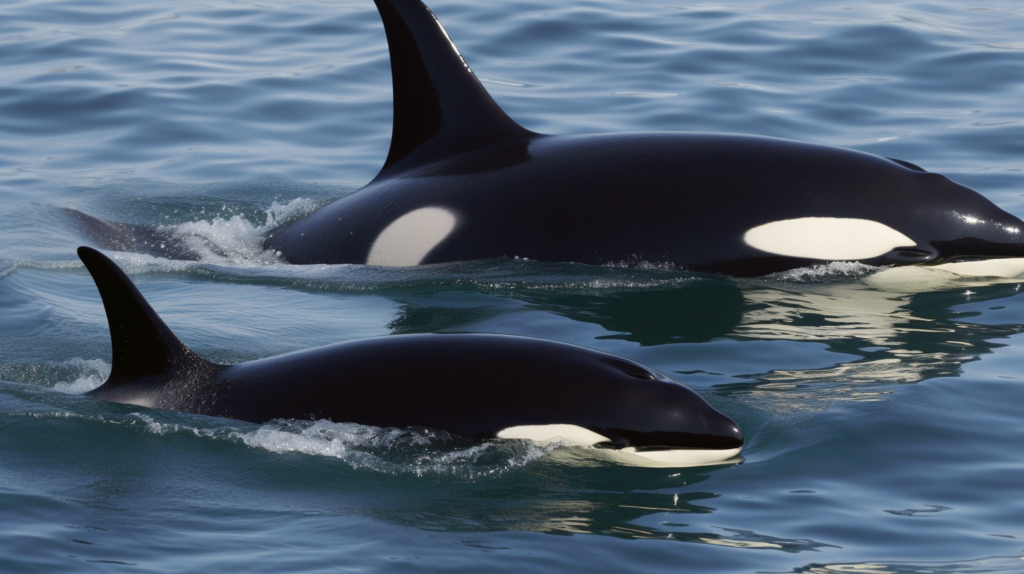


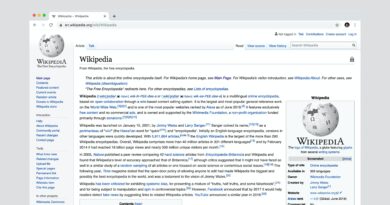

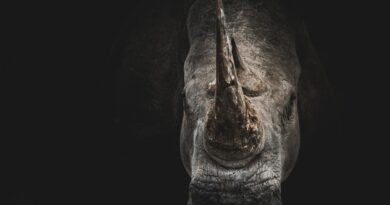
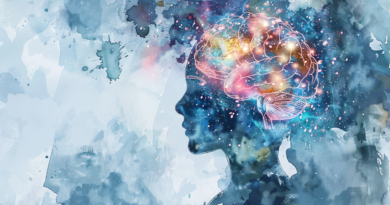
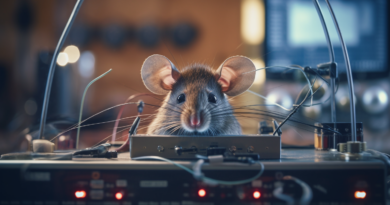

Excelente